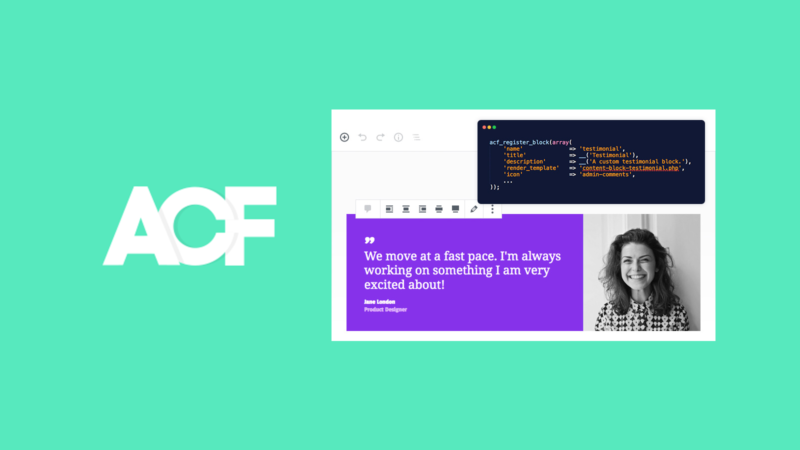
How To Use The New acf/register_block_type_args Filter To Optimise ACF Block Registration
On March 26th, Advanced Custom Fields 5.8.9 was released. It was a relatively minor release, mainly including a couple of bug fixes, translation updates.
But this would be the release that changed everything about block registration.
Quietly, a new filter acf/register_block_type_args was introduced. This allows plugins or themes to modify the registration arguments of a block, similar to how register_post_type_args works for post types. More than that, it allows you to optimise how blocks are registered and we can do a few funky things with this new filter.
One thing we can do is set a common render callback for all blocks. Rather than create a different callback for each block, we can use the same callback and load a unique template based on the name of the block. This would be a bit of an effort if it was just to save writing one line of code while registering a block, but it also means we can have consistent block markup and handle common block settings like class, ID and alignment just once.
In the following example, we’ll be creating a template for each block, with the file name the same as the block name, in a theme subfolder called blocks. This template will be wrapped in a div with classes for the block alignment and custom classes.
Now all you need to do after registering the block is create a new template, and you don’t need to worry about setting block classes in the template.
We can go one step further and automatically enqueue a block specific stylesheet when the block is used. This means your main theme stylesheet will be lighter and your block styles will only be included when needed.
As you can see, using the new acf/register_block_type_args can greatly optimise the way blocks are registered. What other ways can you optimise block registration with this new filter?
